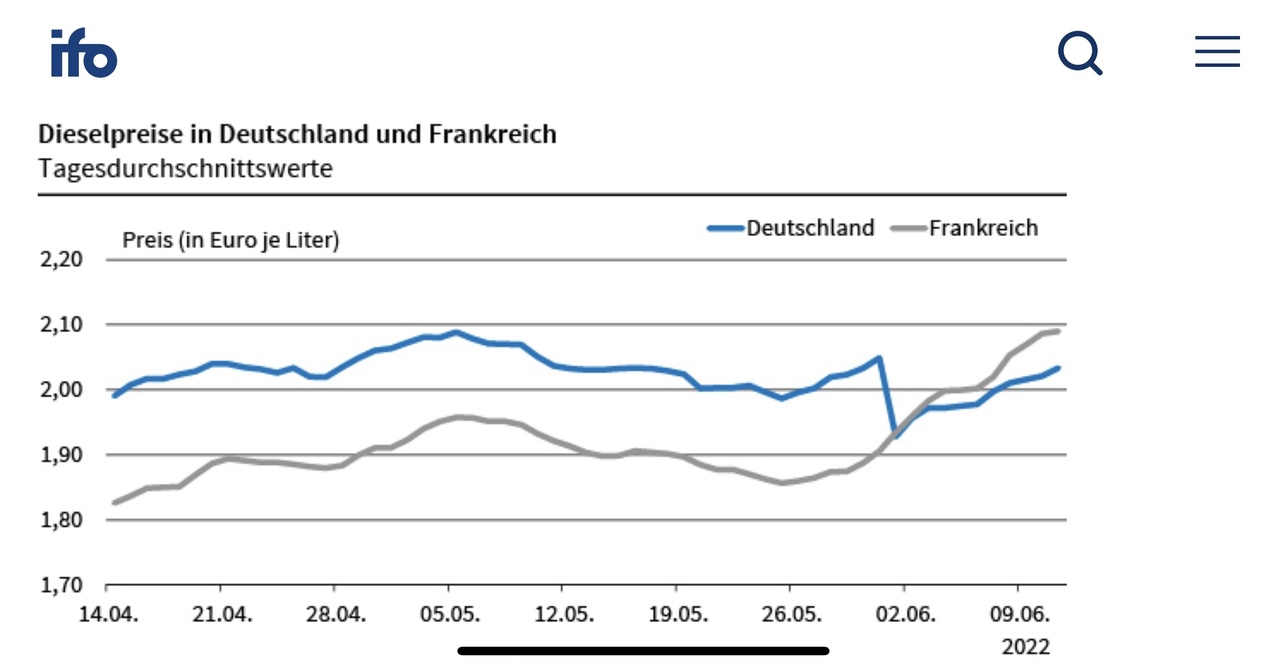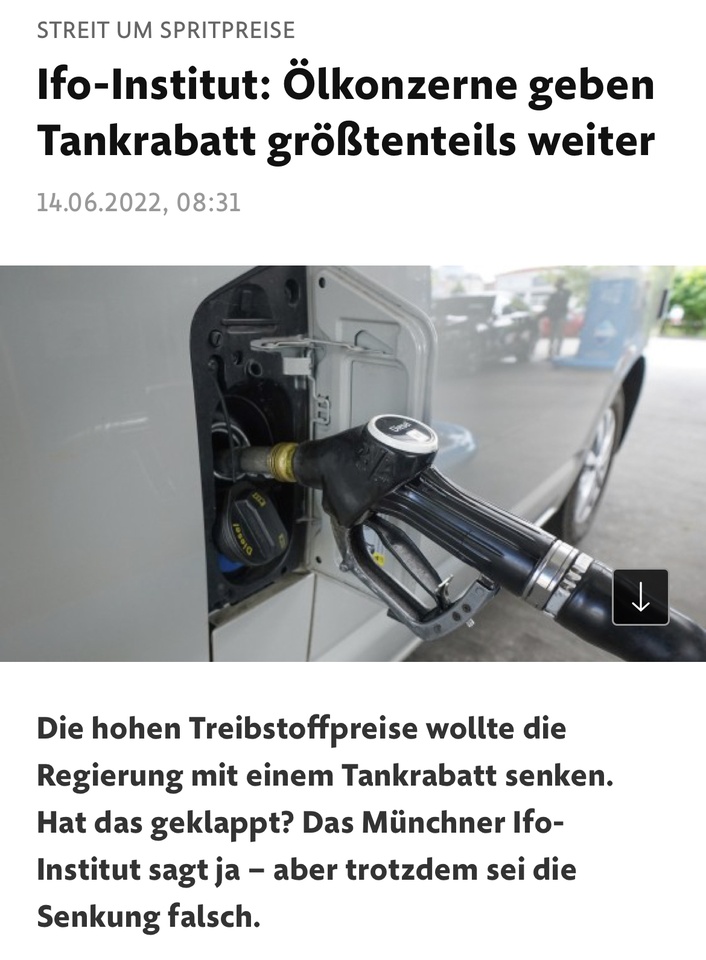+++ Fuel discount is largely passed on+++
I just found a short but very interesting article in the FAZ. According to the article, the fuel discount is passed on almost 100%, in contrast to the almost socialist accusations from politicians and the like.
the IFO Institut compared in addition the tank prices and prices from France and Germany. According to this, even in France, without the introduction of a rebate, prices rose just as they did in Germany. Also in the world-wide comparison one can observe an increase of the prices, thus also the theory of the overprotection and the profit making by the tax cut would be from the table.
What really makes me think are these subliminal attempts in politics and society to implement and establish more and more state regulation. Yes, those who know me know that I definitely see companies as having a social responsibility. But creeping state involvement in business and the like cannot be the solution.
The state cannot and has never been able to make or even lead corporate policy. You can see such complications in well-known prime examples, such as VW or the railroads. Wherever there is interference, where social interests are supposed to be a component, innovations and development inevitably come to a halt.
Isn't the example of Curvac somehow also an example of governmental misjudgement, where BioNTech was already further along in its development than this former student's hut?
Never mind... this is not the topic at all.
The fact is: an alleged excess profit tax, no matter in which industry, is the harbinger of a market model of socialist order. Yes, that I use such harsh words is surprising, but I am simply fed up with this envy and accusation culture in Germany. Even to me, as a moderate left-liberal person, this stitch-up of politics seems slowly ridiculous and without focus on the really important things in this country.
Old-age poverty, child poverty, social inequality and health insurance renovation and modernize the health system would be the construction sites we have in this country.
Instead, we "celebrate" the fuel discount, which mainly benefits the wealthy and frequent drivers, while we stuff the masses with 9 € tickets in crowded trains and feast on their stories. This is also the conclusion of the iFo Institute. But that's another story.
Sources:
iFo Institute incl. graphics: https://www.ifo.de/node/70066
FAZ:
Recommended article from FAZnet:
Google:
https://www.google.de/search?q=ifo+institut+tankrabatt&ie=UTF-8&oe=UTF-8&hl=de-de&client=safari$BP. (+0.6%)
$SHEL (+0.6%)
















